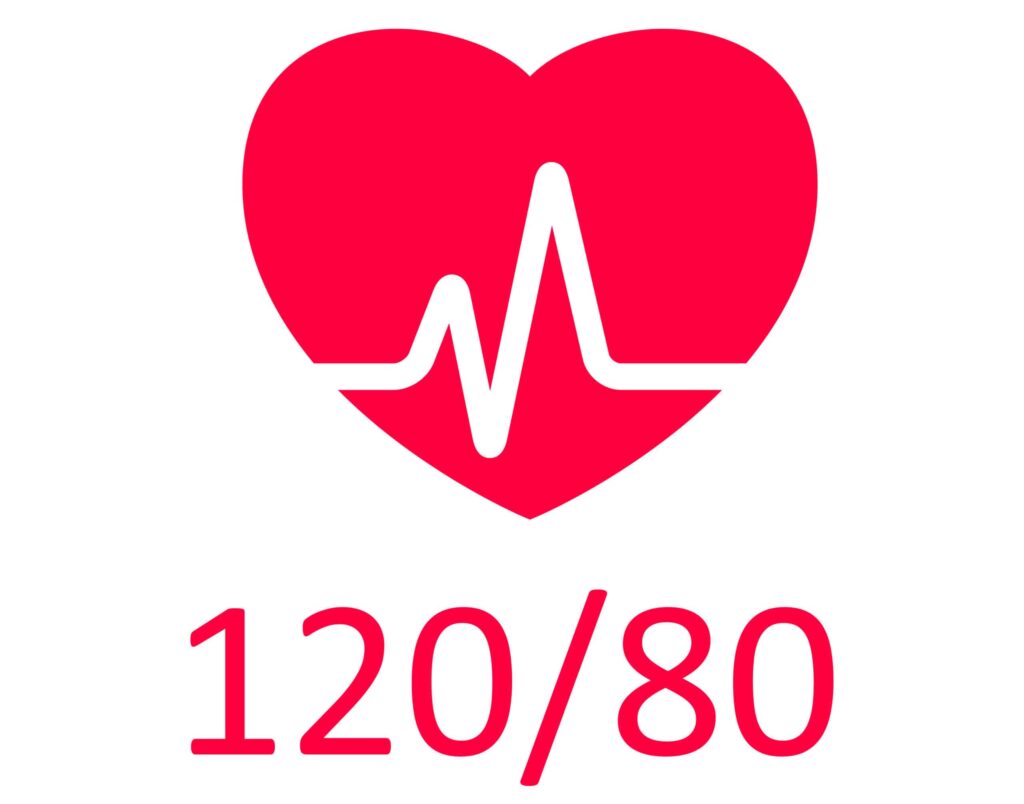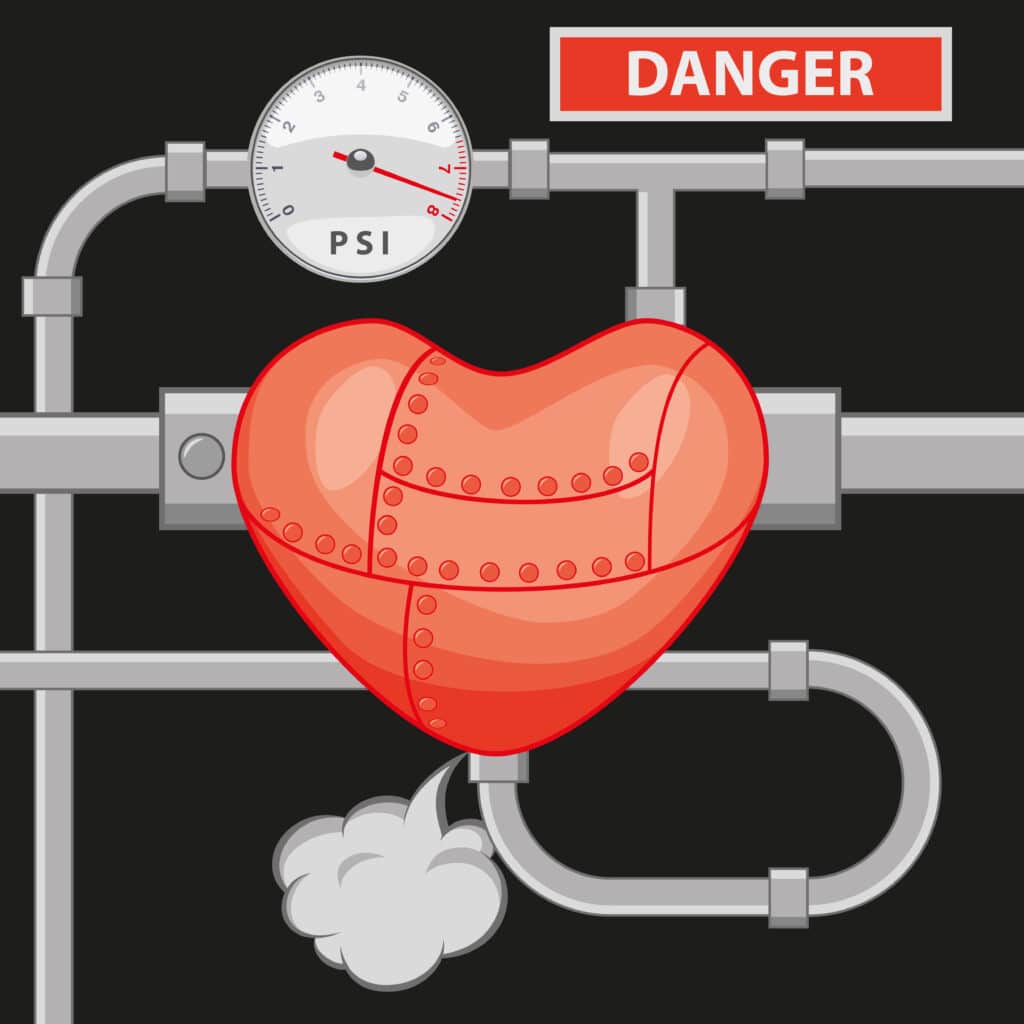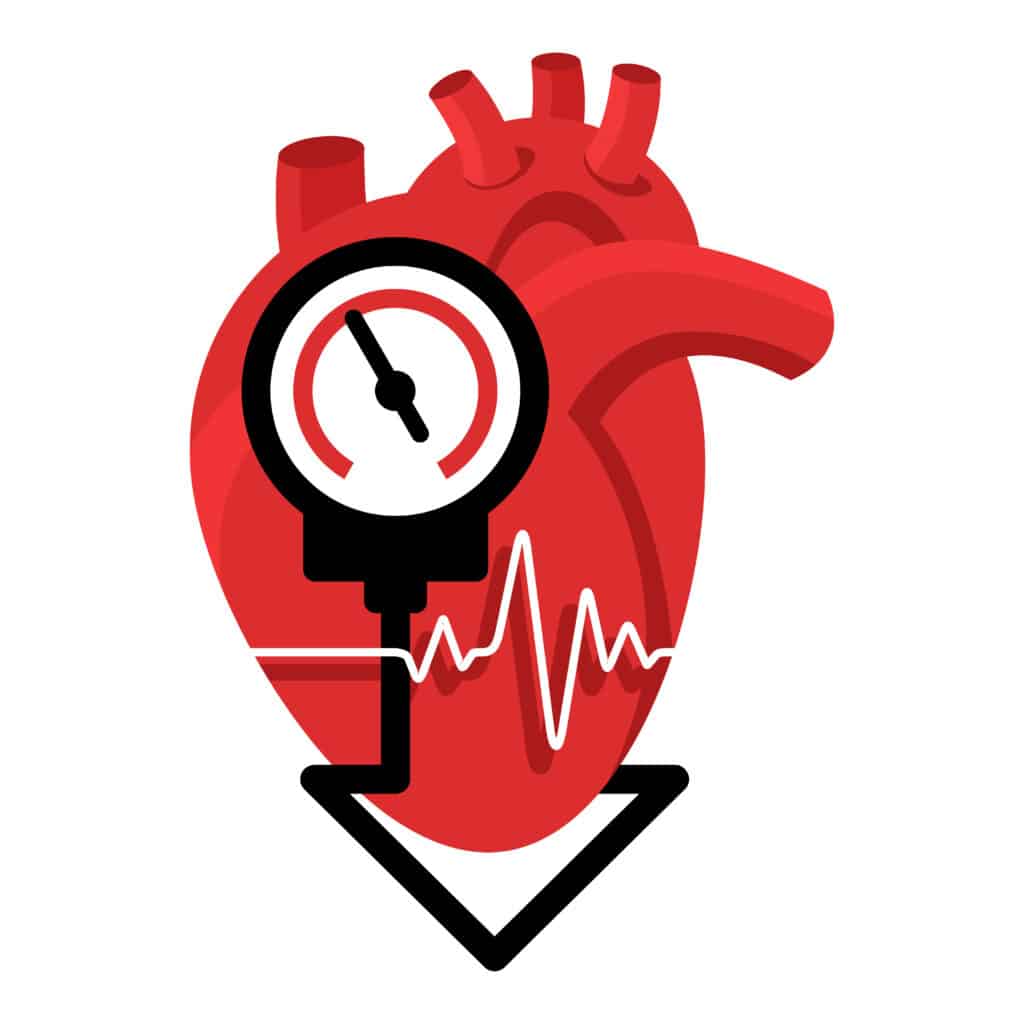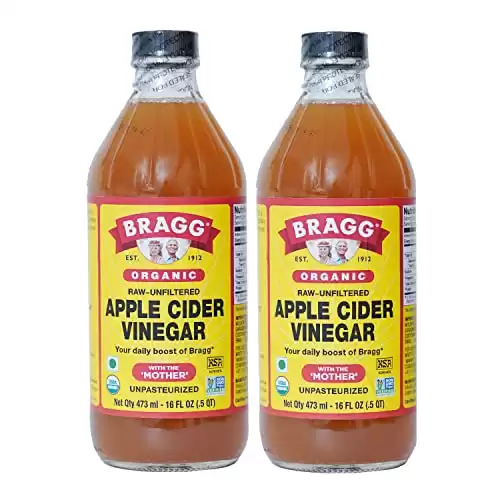
Apple cider vinegar has been used as a traditional home remedy for various health concerns for centuries. One such claim taking apple cider vinegar is that it can help lower blood pressure. High blood pressure, or hypertension, is a common health issue that can lead to severe problems like heart attacks and strokes if left uncontrolled.
Studies suggest that apple cider vinegar may play a role in managing blood pressure due to its acetic acid content and other health-promoting compounds. However, it is essential to note that apple cider vinegar should not be considered a standalone treatment support healthy blood pressure. Instead, it should be used alongside other lifestyle changes and medical treatments to effectively lower blood pressure.
There are potential mechanisms through which apple cider vinegar may assist in lowering blood pressure. These include controlling blood sugar levels, lowering cholesterol, and aiding in weight loss.
However, further research is necessary to establish a more definitive link between apple cider vinegar consumption and blood pressure reduction. One study showed an effect, but another showed no effect, so the evidence is a bit contradictory and unclear.
Read on for all the details…
What is Apple Cider Vinegar?

Apple cider vinegar (ACV) is a type of vinegar made from the fermentation of apple juice. The process begins with the conversion of sugar in the apples to alcohol by yeast, which is then transformed into acetic acid by bacteria. The acetic acid gives the apple cider vinegar’s benefits of its strong, tangy flavor and distinct aroma.
ACV has been used for centuries as a natural remedy for various health issues, and it continues to be popular today for its potential health benefits. It’s available in both filtered and unfiltered versions, with the latter often labeled as “with the mother,” referring to strands of proteins, enzymes, and beneficial bacteria that give the vinegar a cloudy appearance.
Besides the acetic acid, apple cider vinegar also contains other beneficial compounds like polyphenols and potassium. These components have been linked to various health benefits, including aiding in digestion, supporting weight loss, and improving skin health. It’s important to note that while some studies support the potential benefits of ACV, more research is needed to fully understand its effects on health.
Understanding Blood Pressure
Blood pressure is an important indicator of your overall cardiovascular health, and understanding how it works can help you maintain a healthy lifestyle.

The Role of Blood Pressure in Health
Blood pressure refers to the force exerted by your blood against the walls of your blood vessels as it circulates throughout your body. It is measured using two numbers: systolic pressure (the systolic blood pressure or force when the heart beats) and diastolic pressure (the force when the heart is at rest). Normal blood pressure ranges vary, but they tend to fall within the following guidelines:
Systolic pressure: 90-120 mmHg
Diastolic pressure: 60-80 mmHg
Having stable blood pressure within the normal range is crucial for overall cardiovascular health, as it helps ensure adequate blood flow to vital organs, such as the brain and kidneys.
Blood pressure is given in shorthand as 120/80 or 120 over 80, which would mean a systolic BP of 120 and a diastolic BP of 80.
What Causes High Blood Pressure?

High blood pressure, or hypertension, occurs when the force of blood against the artery walls becomes too high. This can be caused by various factors, including:
Genetics
Age
Unhealthy lifestyle habits (such as smoking, excessive alcohol consumption, and lack of physical activity)
Obesity
Medical conditions (such as diabetes, kidney disease, thyroid issues, and sleep apnea)
Hypertension increases the risk for various health issues like heart attack, stroke, kidney disease, and vision problems. Therefore, it’s important to monitor your blood pressure regularly, and take steps to address any contributing factors to prevent or manage high blood pressure.
When it comes to the question of whether consuming apple cider vinegar can lower blood pressure, studies have shown some promising results, but more research is needed to establish a conclusive connection source. Nevertheless, incorporating apple cider vinegar into your diet may provide some additional benefits to your overall health.
Apple Cider Vinegar and Blood Pressure
Apple cider vinegar (ACV) has been used as a home remedy for various health concerns for centuries. This section explores its potential in lowering blood pressure and the scientific understanding behind its effects.

Potential Mechanisms
ACV contains acetic acid and other health-promoting compounds that may contribute to healthy blood pressure management through several mechanisms. These include:
- Controlling blood sugar: ACV may help lower blood sugar after meals, which can contribute to better blood pressure regulation.1 2 3 4
- Reducing cholesterol: ACV could potentially help lower cholesterol levels, thus improving heart health and reducing the risk of high blood pressure.5 6 7
- Supporting weight loss: ACV intake might assist with weight loss, which can, in turn, lower blood pressure by reducing the strain on the heart and blood vessels.8 9
Research Findings

In terms of available research on the topic, studies on the direct impact of ACV on blood glucose and pressure are limited. Smaller studies have found some evidence of a moderate blood sugar-lowering effect after ACV intake. However, this research is not conclusive, and more studies are needed to further understand the relationship between ACV and blood pressure.
While using ACV as a complementary treatment may have some benefits, it is crucial to note that it should not replace medical treatments or lifestyle changes prescribed by healthcare professionals. Always consult your doctor before starting any new supplement or treatment, especially if you have pre-existing health conditions.
Suggested Usage
Dosage and Frequency
There is no specific dosage of apple cider vinegar established for lowering blood pressure, but some suggestions recommend taking 1-2 tablespoons daily, either once or twice per day. It’s important to dilute the vinegar with water, as consuming it undiluted can be harsh on the gastrointestinal system. Some people also mix apple cider vinegar with honey or other liquids to improve the taste.
While there have been some studies, such as one that found humans who took 100mg of apple cider vinegar daily for 12 weeks experienced reduced blood pressure levels, more research is needed to establish a specific dosage for this purpose.
Safety and Precautions
Apple cider vinegar is generally safe to consume, but it is essential to keep certain precautions in mind. First, always dilute the vinegar to avoid irritating the throat or harming the tooth enamel. Second, some people may experience gastric upset or even allergic reactions to apple cider vinegar, so it’s important to monitor your body’s response, especially when starting a new routine.
Additionally, if you are taking any medications, it’s a good idea to consult with your healthcare provider before starting to consume apple cider vinegar regularly, as it might interfere with the effectiveness of certain drugs.
Alternative Approaches
While some studies suggest that drinking apple cider vinegar may have an impact on blood pressure, it is essential to explore alternative approaches to effectively manage high blood pressure.
Lifestyle Changes
Adopting healthy lifestyle habits can be the first step in managing high blood pressure. Some key lifestyle changes that positively impact blood pressure include:
Regular exercise: Engage in moderate-to-vigorous physical activity for at least 30 minutes per day. This can help lower blood pressure by an average of 5 to 8 mm Hg.
Dietary changes: Consume a diet rich in whole grains, fruits, vegetables, and low-fat dairy products. Reduce your intake of saturated fats, trans fats, and cholesterol. The DASH (Dietary Approaches to Stop Hypertension) diet is a proven approach for lowering blood pressure.
Weight loss: Maintaining a healthy weight is crucial in managing blood pressure. Losing excess weight can reduce blood pressure by an average of 1 mm Hg for every kilogram lost.
Limit salt intake: Aim to consume less than 2,300 milligrams of sodium per day. Reducing salt in your diet can help lower blood pressure by 2 to 8 mm Hg.
Alcohol moderation: Limit alcohol intake to one drink per day for women and two drinks per day for men. This can help lower blood pressure by 2 to 4 mm Hg.
Medications
If lifestyle changes are not enough to manage high blood pressure, your doctor may prescribe medications to control blood pressure. Some common blood pressure medications include:
Diuretics: Hydrochlorothiazide, chlorthalidone, indapamide
Beta-blockers: Metoprolol, atenolol, bisoprolol
ACE inhibitors: Lisinopril, enalapril, ramipril
Angiotensin II receptor blockers (ARBs): Losartan, valsartan, candesartan
Calcium channel blockers: Amlodipine, nifedipine, verapamil
It is essential to work closely with your healthcare provider to develop a personalized treatment plan for managing high blood pressure, considering both lifestyle changes and medications when needed.
Can you take Apple Cider Vinegar with blood pressure medication?
It is possible to take apple cider vinegar with blood pressure medication, but it’s important to consult with your healthcare provider before doing so.
Apple cider vinegar may interact with certain medications and affect their effectiveness, or it may cause an adverse reaction. It is known that the diuretics-class (such hydrochlorothiazide, chlorthalidone, and indapamide) of blood pressure medication in particular may be inadvisable to take with ACV. Your doctor will be able to assess your specific situation and provide guidance on whether or not it is safe for you to consume apple cider vinegar while taking blood pressure medication.
Additionally, always remember to dilute apple cider vinegar with water to avoid potential gastrointestinal issues or damage to tooth enamel.
Conclusion
Apple cider vinegar may have potential benefits in managing blood pressure levels, as it contains acetic acid and other health-promoting compounds that can help with blood sugar control, cholesterol reduction, and weight loss. However, it should not be considered a standalone treatment for high blood sugar spikes or pressure. Instead, it can be used as part of a holistic approach, including a balanced diet, regular exercise, and prescribed medications, if needed.
While some studies support the positive impact of apple cider vinegar on blood pressure, it is essential to consult with a healthcare professional before incorporating it into your routine. A typical daily amount of apple cider vinegar is about one to two tablespoons, but it is important to remember that overconsumption effects apple cider vinegar may lead to adverse effects.
Overall, it is crucial to maintain a healthy lifestyle, including a balanced diet and regular exercise, to effectively manage blood pressure levels. Integrating apple cider vinegar into your daily regimen may potentially be a helpful complement, but it should not be viewed as a substitute for professional medical advice and treatment.
Footnotes
- Johnston, Carol S, and Amanda J Buller. “Vinegar and peanut products as complementary foods to reduce postprandial glycemia.” Journal of the American Dietetic Association vol. 105,12 (2005): 1939-42. doi:10.1016/j.jada.2005.07.012
- Salbe, Arline D et al. “Vinegar lacks antiglycemic action on enteral carbohydrate absorption in human subjects.” Nutrition research (New York, N.Y.) vol. 29,12 (2009): 846-9. doi:10.1016/j.nutres.2009.10.021
- Gheflati, Alireza et al. “The effect of apple vinegar consumption on glycemic indices, blood pressure, oxidative stress, and homocysteine in patients with type 2 diabetes and dyslipidemia: A randomized controlled clinical trial.” Clinical nutrition ESPEN vol. 33 (2019): 132-138. doi:10.1016/j.clnesp.2019.06.006
- Johnston, Carol S et al. “Vinegar improves insulin sensitivity to a high-carbohydrate meal in subjects with insulin resistance or type 2 diabetes.” Diabetes care vol. 27,1 (2004): 281-2. doi:10.2337/diacare.27.1.281
- Khezri, Solaleh Sadat, et al. “Beneficial Effects of Apple Cider Vinegar on Weight Management, Visceral Adiposity Index and Lipid Profile in Overweight or Obese Subjects Receiving Restricted Calorie Diet: A Randomized Clinical Trial.” Journal of Functional Foods, vol. 43, 2018, pp. 95–102.
- Panetta, Carmelo J., et al. “Prospective Randomized Clinical Trial Evaluating the Impact of Vinegar on Lipids in Non-Diabetics.” World Journal of Cardiovascular Diseases, vol. 03, no. 02, 2013, pp. 191–196.
- Beheshti, Zahra, et. al. “Influence of apple cider vinegar on blood lipids”
- Khezri, Solaleh Sadat, et al. “Beneficial Effects of Apple Cider Vinegar on Weight Management, Visceral Adiposity Index and Lipid Profile in Overweight or Obese Subjects Receiving Restricted Calorie Diet: A Randomized Clinical Trial.” Journal of Functional Foods, vol. 43, 2018, pp. 95–102.
- Kondo, Tomoo et al. “Vinegar intake reduces body weight, body fat mass, and serum triglyceride levels in obese Japanese subjects.” Bioscience, biotechnology, and biochemistry vol. 73,8 (2009): 1837-43. doi:10.1271/bbb.90231


